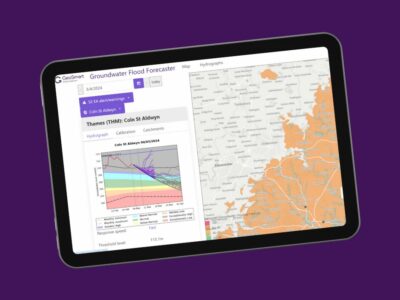What is a Sequential Test?
To undertake a Sequential Test, negotiation with the Environment Agency (EA) and/or the Local Authority will be required. In summary the report should:
- Provide analysis and comparison desirability of the available sites into a professional Sequential Test report, setting out the preferred development site out of the available sites (including the subject site).
- Review a list of sites considered to be reasonably available and appropriate for the proposed development in areas with a lower probability of flooding within the Local Authority area (or other area specified) at the time of assessment.
- Undertake a review of the local Strategic Flood Risk Assessment (SFRA) and other relevant local planning documents to ascertain any local flooding issues and to locate Sites which could be considered as suitable alternatives.
- Undertake consultation with the Local Council to assess the viability of other sites and to confirm the method by which the Sequential Test should be undertaken.
- Compare surface water and flood risk data at the site and a defined list of alternative sites, to eliminate sites at higher risk of flooding from the sequential test assessment.
- Complete additional research and analysis of the remaining sites which could not be eliminated on flood risk grounds to assess whether they could be ‘reasonably available’ as defined by national planning policy.
- Complete further analysis of the alternative ‘available’ sites.
What is an Exceptions Test?
In line with paragraph 163 of the NPPF (2021), if following the application of the sequential test, it is not possible for the development to be in Flood Zones with a lower probability of flooding, the Exception Test can be applied.
The exception test consists of two components; demonstrating that flood risk can be managed for the lifetime of the development, and consideration of the wider sustainability benefits to the community that outweigh flood risk.
Sequential and Exceptions Test
- Sequential Test report
- Exceptions Test report (if required)
Frequently Asked Questions
Yes, a flood risk Sequential Test is not usually required:
- If the project is a change of use.
- If the development is in a Flood Zone 1.
- For some minor developments, e.g., a shed, extension etc.
Yes, a Flood Risk Assessment will need to be carried out, ideally prior to the Sequential Test, so you can demonstrate that the development will be safe for its lifetime taking account of the vulnerability of its users, without increasing flood risk elsewhere, and, where possible, reducing flood risk overall.
There is no requirement for the person who carries out a flood risk sequential test to hold a particular qualification, however you will often find they are carried out by those who have significant knowledge in flood risk, such as an environmental consultant at GeoSmart.
No, there is no requirement to visit the site, as data and information can be obtained remotely.
A development proposal will only fail to pass the sequential test if alternative sites are identified within the search area that are at lower risk of flooding, appropriate for the proposed development and are ‘reasonably available’ for development. A site is only considered to be reasonably available if it is both ‘deliverable’ and ‘developable’ as defined by the NPPF.
If there are no potential alternative development locations at a lower flood risk than the subject site, then the site and proposed development is considered to have passed the Sequential Test, but requires application of the Exception Test.
At GeoSmart, we can usually produce a Sequential and Exceptions Test report within 6 weeks from payment and completion/receipt of the Site’s flood risk assessment. This also allows feedback from our chosen Planning Consultancy.

Still have questions? Chat to our friendly team today
We value the quality of all that we do as critically important and our team is goal oriented
Gregory Gray
Gregory Gray Associates
Craig Roberts
Hunter Page







